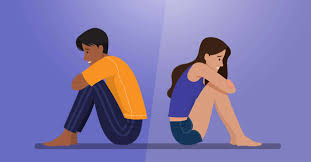Even after the traumatic loss of a loved one, there are some simple things people can do to feel better. That is the conclusion of a new study at North Carolina State University. The findings, published in February 2024, can be a source of encouragement for anyone grieving, but especially for those who have lost someone they deeply love to a traumatic or premature death.
What is traumatic or complicated grief, and what about it can be especially difficult? What is most encouraging about these latest findings? Finally, what can you do to improve your mood when you’re experiencing traumatic grief?
Navigating Grief After Traumatic Loss
Grief of any kind is challenging, but traumatic grief (which is also called “complicated” or “unresolved” grief) is different. Its symptoms are often intense and prolonged, causing more impairment in a person’s day-to-day-life.
Symptoms of Complicated Grief with PTSD
Complicated grief can also include many of the symptoms that define post-traumatic stress disorder (PTSD). The bereaved person with co-occurring PTSD may experience strong feelings of fear, anxiety, or depression. They can have trouble sleeping and other physical symptoms such as tightness in the chest, shortness of breath, digestive trouble, and lethargy. Difficulties concentrating and making decisions or accepting the loss are common mental symptoms.
Meanwhile, in addition to the physical, mental, and emotional aspects of PTSD that can manifest with traumatic grief, certain behaviors may signal that a person is struggling with post-traumatic grief. They may go out of their way to avoid external reminders that their loved one has died. They may take a different route home, so that they don’t have to see their loved one’s old school or catch sight of their friends on the playground at recess. Another common behavior: discontinuing daily activities that once generated interest, joy, or a sense of meaning.
What’s Encouraging About New Findings
The traumatic loss of a loved one is often so overwhelming that it can elicit a sense of helplessness, especially in those with symptoms of PTSD. It is not uncommon for the bereaved person to feel “stuck” in their grief, unable to move forward or do anything to find relief or release. Certain PTSD symptoms in particular—flashbacks, for example—can reinforce this experience of psychological and behavioral inertia.
Traumatic grief can immobilize you, but these new findings are encouraging. They suggest you can improve how you feel on a day-to-day basis, simply by doing some basic things. These “uplifts,” as the researchers called them, are behaviors thatboosted study participants’ emotional wellbeing. The good news is that we do have agency in our grief and can choose to engage in activities that will help us feel better.
“Uplifts” That Are Good for Anyone
What activities were effective at improving mood? The NCSUresearchers shared this preliminary list of “uplifts,” and there may be many more:
• Completing a task
• Getting enough sleep
• Dining out
• Visiting, phoning or writing a friend
• Spending time with family
Anyone can benefit from doing one or more of these things, the researchers said. The point is that some behavioral choices can significantly improve how we feel, even when we’re facing life’s hardest challenges.

